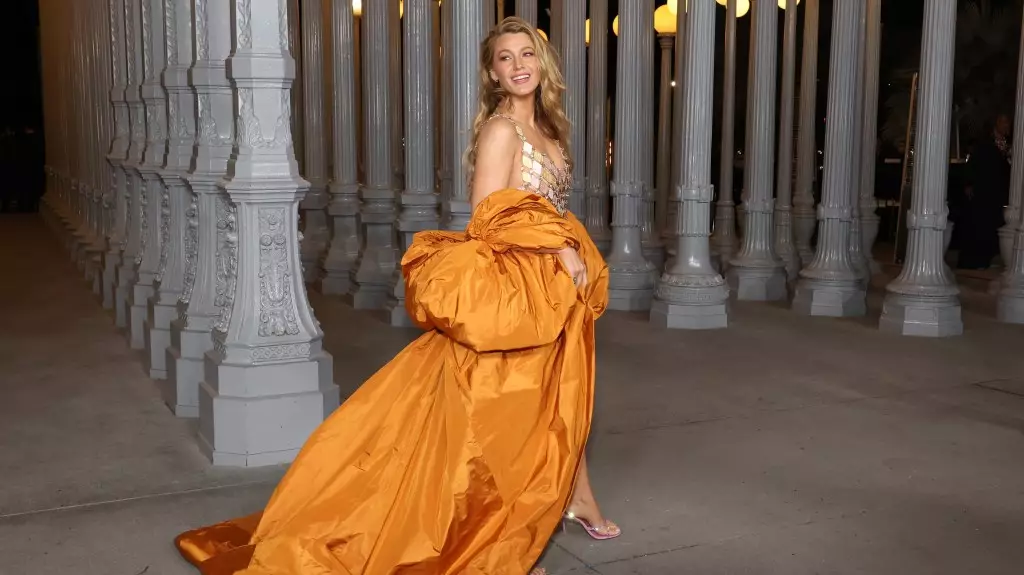In a striking turn of events that has captured the media’s attention, actress Blake Lively has lodged a substantial lawsuit against her co-star and director, Justin Baldoni. This lawsuit comes in the wake of serious allegations, including claims of sexual harassment and a concerted campaign to damage Lively’s reputation following her decision to speak out about the misconduct on set of the film adaptation of Colleen Hoover’s novel, “It Ends With Us.” The case sheds light not only on the charged atmosphere within the entertainment industry but also on how allegations of this nature can profoundly impact the careers and personal lives of those involved.
Among the most significant ramifications of Lively’s allegations has been her abrupt withdrawal from public engagements. Most notably, she was forced to cancel her appearance as the host for the premiere of Season 50 of “Saturday Night Live,” an opportunity that eventually went to Jean Smart. According to Lively’s legal filing, the ongoing negative publicity stemming from the harassment claims created an atmosphere of discomfort that impeded her ability to participate in public events. “Ms. Lively canceled a critical Target corporate event for her haircare company,” the legal documentation notes, highlighting the immediate and widespread effects of the alleged misconduct on her professional life.
Lively’s withdrawal raises critical concerns about the pressure actors face in public appearances, particularly in the wake of scandalous claims. It suggests that the toll of such allegations is often not confined to personal anguish but extends into the professional domain, jeopardizing careers even before a court has weighed in on the matter. Such situations illustrate the precarious balance celebrities must maintain between their personal lives and public personas—often, the latter can be irreparably harmed by the mere suggestion of wrongdoing.
The legal complaint articulates a troubling narrative of a “sophisticated press and digital plan” orchestrated by Baldoni and his team to undermine Lively’s credibility. This notion of a retaliatory smear campaign is alarming, particularly in an age where social media can amplify narratives—true or false—with unparalleled speed. The allegations depict an environment where an abuser may attempt to exert control over their victim through public manipulation, thereby complicating the quest for justice and accountability.
Baldoni’s reported response has been vehement, with his attorney categorically denying Lively’s claims, asserting that her accusations are unfounded and a misguided attempt to manage her public image. This back-and-forth creates a layered conflict, where each party’s narrative attempts to overshadow the other, leaving the public in a whirlwind of speculation. The dichotomy between Lively’s accusations and Baldoni’s defense serves as a stark reminder of how challenging it can be to discern the truth amid conflicting stories.
The fallout from this lawsuit extends beyond the two individuals involved; it raises questions about the broader culture within Hollywood. As the industry continues grappling with issues of sexual harassment, workplace safety, and power dynamics, Lively’s case illustrates the ongoing struggles many face when confronting powerful figures. The alleged behaviors described in the suit—such as improvised sexual content and inappropriate remarks—are part of a troubling trend that has surfaced repeatedly in discussions surrounding the film and television industry.
Moreover, the supportive stance taken by author Colleen Hoover offers a glimpse into the solidarity that often emerges among women in an industry fraught with inequalities. Hoover’s public endorsement of Lively highlights how sharing individual stories can empower others, potentially leading to a changing landscape where such behaviors are no longer tolerated.
Blake Lively’s lawsuit against Justin Baldoni invites a critical examination of not just the alleged misconduct but the systemic issues that allow such actions to persist within Hollywood. The repercussions of these allegations not only threaten professional reputations but also highlight a need for accountability among those in positions of power. As this case unfolds, it will certainly provide a litmus test for the entertainment industry’s ability to address longstanding problems of abuse and silence. The outcome, while uncertain, promises to contribute to an ongoing conversation about justice, transparency, and the importance of supporting those who bravely choose to speak out against misconduct.



Leave a Reply